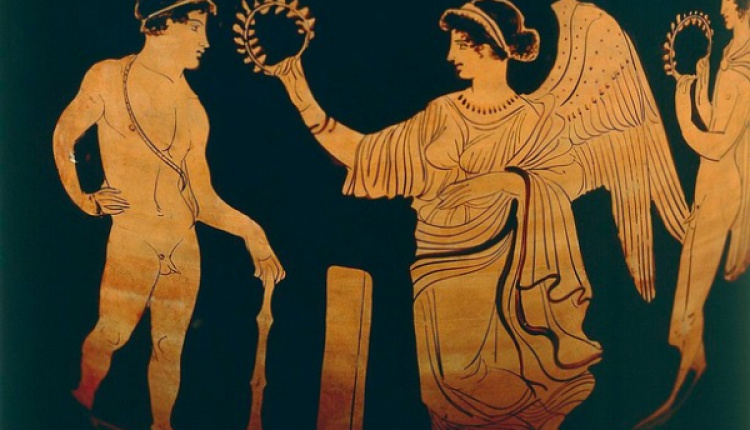A Brief History Of The Olympic Games
- by XpatAthens
- Wednesday, 10 April 2024

The Olympic Games, with their roots deeply embedded in ancient Greek culture, stand as a testament to humanity's enduring spirit of competition, athleticism, and unity.
Spanning millennia, this global sporting event has evolved from its humble beginnings to become one of the most celebrated and anticipated spectacles in the modern world.
Spanning millennia, this global sporting event has evolved from its humble beginnings to become one of the most celebrated and anticipated spectacles in the modern world.
Ancient Origins
The origins of the Olympic Games can be traced back to ancient Greece, where they were held in Olympia, a sanctuary dedicated to Zeus, the king of the gods. The earliest recorded Olympic Games date back to 776 BC, although it is believed that they may have begun even earlier, around the 8th century BC.
The Ancient Games
The ancient Olympics were held every four years, a period known as an Olympiad, and were part of a religious festival honoring Zeus. Athletes from various Greek city-states would gather to compete in a variety of events, including running, wrestling, boxing, chariot racing, and the pentathlon, which consisted of running, jumping, discus and javelin throwing, and wrestling.
In the ancient Olympic Games, winners were not awarded monetary prizes or medals like in the modern Olympics. Instead, victors were honored with symbolic rewards, such as olive wreaths or crowns made from laurel leaves, which were highly esteemed symbols of victory and honor in ancient Greek culture. Additionally, victorious athletes were often celebrated as heroes in their hometowns, receiving lavish praise, gifts, and even lifetime pensions for their athletic achievements.
The ancient Olympic Games served not only as a platform for athletic competition but also as a symbol of unity among the Greek city-states. During the Olympics, a sacred truce known as the "Ekecheiria" was observed, allowing athletes and spectators to travel safely to and from Olympia without fear of conflict.
The End of an Era
The ancient Olympic Games continued for over a millennium, enduring various political, social, and economic changes. However, in 393 AD, the Roman Emperor Theodosius I banned all pagan festivals, including the Olympics, marking the end of the ancient Games after their 293rd Olympiad.
Revival of the Modern Olympics
It wasn't until the late 19th century that the Olympic Games were revived, thanks in large part to the efforts of French educator Baron Pierre de Coubertin. Inspired by the ancient Olympics and motivated by a desire to promote international understanding and peace, Coubertin proposed the idea of reviving the Games during the International Congress for the Reestablishment of the Olympic Games in 1894.
The First Modern Olympics
The inaugural modern Olympic Games were held in Athens, Greece, in 1896, with athletes from 14 countries competing in 43 events. Since then, the Olympic Games have grown in scale and popularity, attracting thousands of athletes from around the world to compete in a wide range of sports.
A Global Celebration
Today, the Olympic Games represent a global celebration of athleticism, sportsmanship, and unity. Held every four years, alternating between summer and winter editions, the Olympics bring together athletes from diverse backgrounds and cultures to compete on the world stage.
Over the years, the Olympic Games have evolved and expanded, incorporating new sports and disciplines to reflect changing trends and interests. In addition to traditional events like track and field, swimming, and gymnastics, the modern Olympics now feature a wide range of sports, including snowboarding, beach volleyball, and BMX cycling.
Impact and Legacy
The Olympic Games have had a profound impact on the world stage, serving as a platform for promoting peace, tolerance, and understanding among nations. They have also inspired countless individuals to pursue their athletic dreams and strive for excellence in their chosen fields. With each new edition, the Olympics continue to captivate audiences worldwide, leaving a lasting legacy of athleticism, camaraderie, and human achievement.
From its ancient origins in Olympia to its modern-day incarnation as a global sporting extravaganza, the Olympic Games have captured the imagination of people across the globe. With a rich history spanning thousands of years, the Olympics continue to inspire awe and showcase the boundless potential of the human spirit.


